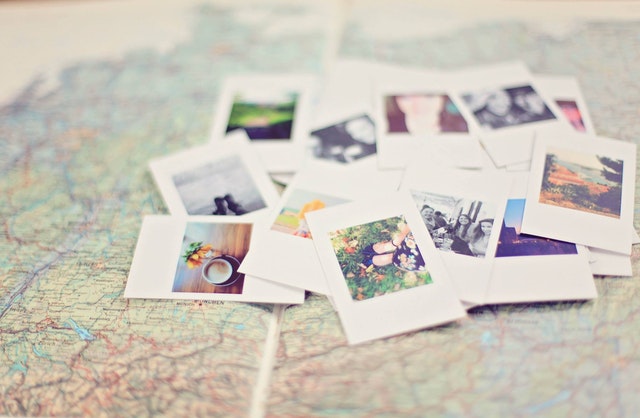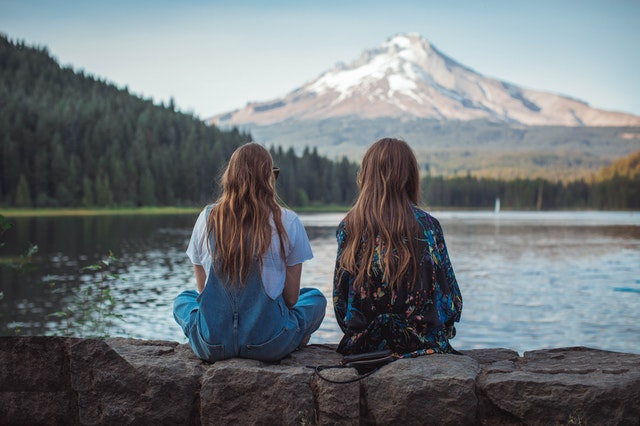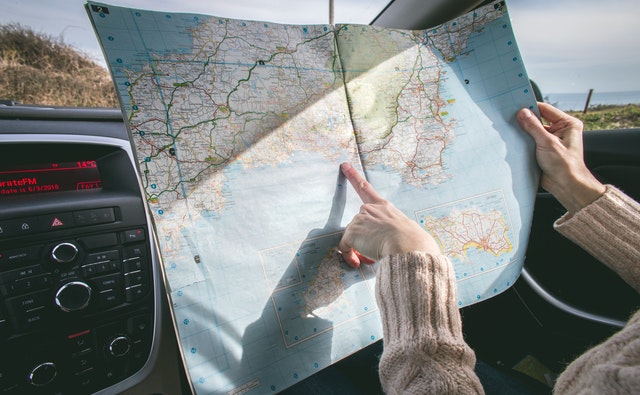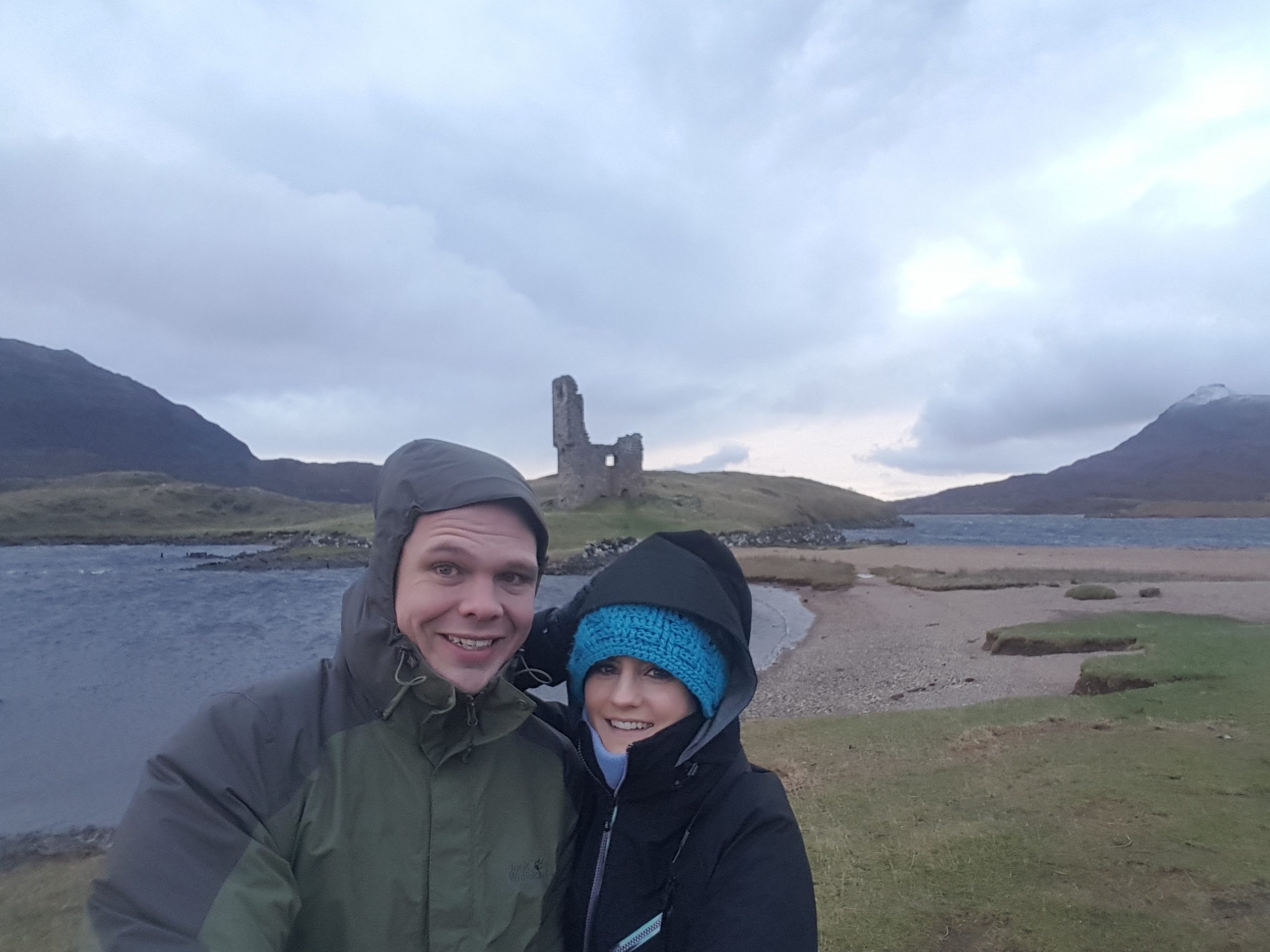
Travelling against depression
Stepping out of your depression haze with travelling.
During some of my worst times living with depression, days seemed to melt into one another. The last thing I thought about was travelling. I spent a lot of time on the couch, withdrawing and distracting myself, numb and unmotivated to do anything.
I ate the same easy-to-heat-up soup and wore the same sweatpants. Some days I barely brushed my hair. Time seemed to drag on infinitely. At the same time, weeks would just disappear and it would be the next month before I realized it.
I was living in a sort of haze that trapped me in a cycle of the same things. Simply put, I couldn’t find the energy or motivation to do anything different. It seemed too hard. In the midst of this, because of a family situation, I was forced to incorporate a trip into my life that I would have otherwise not taken on.
I was very upset about having to break my well-crafted routine of isolation and neglecting self-care. In addition, I was scared beyond measure about what leaving my familiar surroundings would do to me. But it was a really important trip, so I felt I had no choice.

The surprising outcome
To my surprise, the trip ended up being a wonderfully uplifting change of pace. Trapped in my depression haze I would not have thought to challenge myself to get up and go like that. It was partly because I had no real motivation or point to getting dressed in actual pants and socializing, eating something new, and seeing some new places along my travels.
The trip ended up being a very pivotal moment for me that gave me a new perspective. It helped me break out of some of the worst times in my depression. This is when I discovered that travel in the right way can have a positive effect on depression. For me, it was a worthwhile journey to explore (pun intended).

Admittedly, my parents worried about me going on this trip. The fact that I had spent months not being able to take care of myself spoke for itself. Their fear was definitely warranted. What if I had a mental breakdown far away from home and my parents?
Could it get to the point where I would try to harm myself and nobody could help me?
“If you think adventure is dangerous, try routine, it's lethal.”
- Paul Coelho
The only benefit was that I was leaving home to go see family. Yes, I would be getting on a plane and leaving the country; however, I was going straight to my aunt’s house. There, I would be surrounded by family and friends. It was not very likely that I would get in trouble on the plane. So, my parents booked the ticket and off I went.

Benefits of breaking the routine
In our worst times of stress, one of the coping mechanisms we employ is building a routine. This helps at least some things in our control be a little more predictable. It gives us a little more room to focus on everything else that is not. Building a routine is a natural reaction to feeling things being out of control. And routines can be very cathartic in chaos. Over the long term though, they can also be the very thing that keeps us trapped in the same place.
Once we have had a chance to regain more control, make changes, mourn or go through whatever initial process is needed to overcome stressful times, our “protective” routines can end up pulling us back into the same place instead of letting us move on fully. That’s when travel can be a very freeing experience.
Travelling can help us shift our minds and bodies out of our old routines in order to become open to the next steps.
Often, we don’t know what those next steps will be yet. Truthfully, travel does not just magically give you those answers. But every time I was depressed and finally pushed myself to go on a trip, I returned changed somehow. The experiences from travelling cannot be erased. I created beautiful memories and saw many amazing sights. I met incredible people, many of whom turned into life-long friends.

Travel created a change of scenery that was non-compatible with my depression. My focus was shifted from anxiety and depression to surviving and living in the moment. Yes, there were times when I thought travelling was too much. But, afterwards, I was always glad I went.

Making travelling a positive experience
A new perspective
Travel forces us to step out of our little world that we have retreated to, and gives us a reminder of the bigger picture again. At first, I found the thought of stepping out of my little bubble quite intimidating. After all, there was a reason I had retreated so far into isolation.
Surprisingly though, I found that the change in surroundings started to trigger new thoughts in my mind, and I felt a little relief along with a little excitement from this change of pace. I wasn’t just wallowing in my own worries and thoughts anymore because I was receiving new input and ideas from the new world around me.

In a way it was challenging to make the change, but rewarding in feeling like I was getting some distance from that couch.
The right way to travel
In the end I think that travelling can be a very positive and helpful way to break out of depression routines and isolation bubbles. The key is that it has to be done the right way for your comfort and your particular form and intensity of depression. Starting small can be the key to keeping things from getting overwhelming.
If you have the choice to plan your travel, start with a day outing that takes you out of your familiar surroundings. If you have a positive experience, progress from there to an overnight stay or even a flight out of the country. Talk to your support people and counselors or health practitioners to see if they have any concerns. Most importantly, believe in yourself to take on the challenge of a change in routine.

Again, it’s all in how you travel that can still make it comfortable enough to enjoy. While I was travelling, I found it really important to take care of my body. I made sure to carry lots of water and nuts to keep me going throughout the day. I also had super comfortable shoes for walking and functional rain and snow gear to guard me against weather.
If possible, plan trips to see family and friends first. This makes the change in routine a little easier. If you just pack up and head to a new country where you do not speak the language, you might trigger anxiety and fear right away. Start small and then aim bigger.

Tips for travelling with depression
Plan to take it slow
Whether or not you have a choice to time, shape or lay out your trip will really make a difference. So, if you can: plan, plan, plan.
The more time you leave yourself to lay out the itinerary, pack and get to any airports or train stations, the better. Rushing or a lack of rest and sleep is what creates stress and chaos. Try to plan things in a way that leaves you plenty of time for possible late drivers or delays. That way you can take things slow and feel more in control.
Depending on how long your trip will be, make sure you plan your trip so that you come home a day or two before needing to get back to work or other commitments. That way you leave yourself plenty of time to get home and get organized again, do laundry, grab groceries and a good night’s sleep. That will help avoid additional fatigue from arriving home.
Prepare
Depending on the type of depression you are experiencing, a large out-of the country trip may or not be recommended by your mental health professional. If it is something that’s possible in your life then being prepared in some ways can help make the trip more enjoyable and low stress.
Be aware that mental health problems are not handled the same way in all cultures. Do your research ahead of time to make sure you can find support if it was needed during your trip.

Having online counselling sessions throughout your trip might be a helpful way to stay grounded with your support. There are also online support communities for depression and anxiety that you can access from anywhere with WiFi. Thinking positive is a great thing, but being prepared for some eventualities is even better.
Travelling with medication
If you are taking medication while you travel, understand that border controls can be quite skeptical of medication. Be sure to have pills in their original labelled bottles, and bring a doctor’s note to support your medical prescriptions if you are worried.
Also make sure that you pack plenty of medicine with you so you have some extra pills in case something unexpected comes up. The availability of medication may depend from country to country. You might also have a hard time finding a local doctor that can prescribe medication to you. So, just be prepared and have your meds with you.
If you run into an emergency situation where you lose your medications or they are stolen, you can contact your country’s consulate as well. They can help translate for you and often can arrange for your usual medication to be made available to you.
Bring some comforts from home
While it can be exciting to see new places, it can also be fatiguing. If you’re not used to being out of your routine, you might feel this even more. Bring some comforts from home to recreate parts of your routine on the go to take a break.
Kick back and have a bath with your favorite music even when you’re away from home. Maybe you can bring your favorite book or your sweatpants to retreat to after a long day of exploring. Pack your favorite snack to keep you happy while you get used to new foods and experiences.

And another big one - make sure you stay in touch with loved ones online or on the phone. It makes a big difference to have a familiar support system that can share the experience with you. The cheapest way is to buy a local SIM card if you are leaving your home country and use free WiFi when it is available. Then you can chat and call on your own phone without breaking the bank.

The Takeaway
It’s hard to explain the way travelling makes me feel. In part because it usually changes me in such unexpected ways. I have definitely grown because I chose to take the plunge and just go. Further, I have experienced things that will stay with me for a lifetime. Unforgettable places, beautiful sunsets, time spent with family and friends.
There is also the other side to travelling, which I have encountered as well. Sometimes I felt anxious, alone, and scared. This happened often when I traveled solo to a new country. The sudden change in scenery and just not knowing anyone can be difficult and even more so for someone who is experiencing depression.
But, I have learned to trust myself. The sudden change has always been a welcome relief from my depression and my isolation. Like I said before, I have found that rapidly changing my surroundings was not compatible with being depressed. When a trip was well-planned and I was prepared, the results were that depression had to pause for the time being. There was no room for my brain to take in all the new experiences while being depressed at the same time.

It may come as a bit of a surprise that I chose to travel alone. I actually found that I like travelling alone. The freedom to choose my destinations and my pace felt good to me. And I always met new people along the way. I have also traveled with my spouse, family, and friends at times. It depends on what feels right for you and you can make that choice.
The way you travel
If you have the chance to travel when you are depressed and you are able to plan for some eventualities, I would encourage you to give it a try. My first trips during depression started out to my family, which ensured I had a support network available when I arrived. Consider visiting your family, if you enjoy spending time with them. Or travel to see your best friend for example.
A trip to Boston to see my best friend was one of the best experiences I ever had.
Be sure you plan and prepare for your trip. Heading off without a plan can leave you vulnerable to sinking into depression while out of your familiar surroundings. Communicate with your family and friends as to where you are, so someone can check in with you and make sure you are ok. Don’t be embarrassed to take the help. And don’t think they want to control you.

I know it was very tough for my parents to just let me leave on a plane. Checking in with them a few times a day made them feel at ease and gave me a support structure during my travels. Even if it was just a quick text or picture of where I was. Understand that your loved ones worry about you and this can help with their anxiety as well as your depression.
And most importantly, trust yourself and have fun. This might sound completely unreasonable when we are talking about depression, but the change of scenery may give you just a few moments of peace. Take it all in and maybe you will make this your own start to breaking through depression.
You are much stronger than you think and the world is yours to discover!
Sources
https://www.iamat.org/travel-and-depression
